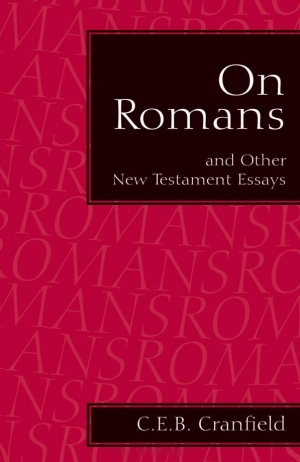Basle ought to have sent [Wollebius] to that synod [of Dort] instead of the two mediocre delegates she sent, as he would have ranked up close to Diodati in ability. —James I. Good, History of the Swiss Reformed Church Since the Reformation . . . Continue reading →
June 2014 Archive
Office Hours: Sanctification And Virtue
One aspect of our new life in Christ to which modern evangelical and Reformed Christians have not always paid a great deal of attention is the matter of virtue. There are some good reasons for this. The medieval church came to think . . . Continue reading →
Taking Notes By Hand Works Best
Pop quizzes, of course, are not the best measure of learning, which is an iterative and reflective process. Recent Princeton University and University of California studies took this into account while investigating the differences between note-taking on a laptop and note-taking by . . . Continue reading →
The Shield Of Works? Faith, Spiritual Warfare, And Salvation
The preacher this morning read from Ephesians 6 and Paul’s expression in 6:16 struck me relative to the current discussion about works and salvation. There is no question whether believers will do good works or whether those good works are evidence of . . . Continue reading →
Augustine On Romans 2:13
Now he could not mean to contradict himself in saying, “The doers of the law shall be justified,” as if their justification came through their works, and not through grace; since he declares that a man is justified freely by His grace . . . Continue reading →
Calvin On Romans 2:13 In His Institutes
That they indeed quote Paul in the same sense does them very little good: “The doers of the law, not the hearers, are justified” [Rom. 2:13 p.]. I do not intend to evade the question through Ambrose’s solution: that this was said . . . Continue reading →
20th Anniversary Of Exiles From Eden
Readers and others sometimes ask which books have influenced the way I look at this or that. Sometimes I can answer, sometimes I can’t. One influential book that I read early in my academic career, while I was a graduate student, was . . . Continue reading →
Witsius And Turretin On The Necessity And Efficacy Of Good Works In Salvation
Introduction There is no question among orthodox, i.e., confessional, Reformed folk whether good works are necessary as a consequence, evidence, and a fruit of justification and sanctification by grace alone, through faith alone. There is no question whether God’s moral law, whether summarized in . . . Continue reading →
Charles Hodge On Romans 2:13
VERSE 13. For not the hearers of the law. This verse is connected with the last clause of the preceding, and assigns the reason why the Jews shall be judged or punished according to the law; the mere possession or knowledge of . . . Continue reading →
Free: Cranfield On Romans And Other NT Essays (UPDATED)
I’m just getting beginning to use and getting to know Logos. They are offering a free copy of C. E. B. Cranfield’s On Romans And Other New Testament Essays. This is a valuable resource. Cranfield’s 1975 ICC commentary remains a standard reference . . . Continue reading →
Get This Outstanding Book FREE
When, in 1994, Carl Trueman kindly invited me to co-edit Protestant Scholasticism: Essays in Reassessment there was no such modern introduction to what had long been a forgotten or misrepresented period of Protestant theology. Since the publication of PSER (1998), there have . . . Continue reading →
Tribalists All
We may conclude, apparently, that Merritt favors cosmopolitanism to sectarianism. But what sense does this make of biblical calls for God’s people to isolate themselves. The Israelites weren’t exactly interested — or weren’t supposed to be — in a Jerusalem that featured . . . Continue reading →
Notes From URCNA Synod Visalia 2014
Reporting from URCNA Synod in Visalia, California. In Reformed church government there are four deliberative bodies that make decisions, a consistory (ruling elders and ministers of a local congregation), a council (ruling elders, ministers, and deacons of a local congregation), classis (a . . . Continue reading →
Romans 2:13—Justified Through Our Faithfulness? (4)
In part 3 we began looking at a document, from 1978, which proposed a two-stage doctrine of justification. It recognized that there is some risk, some difficulty, in speaking of a present justification and a future justification. Nevertheless, the document contends that . . . Continue reading →







